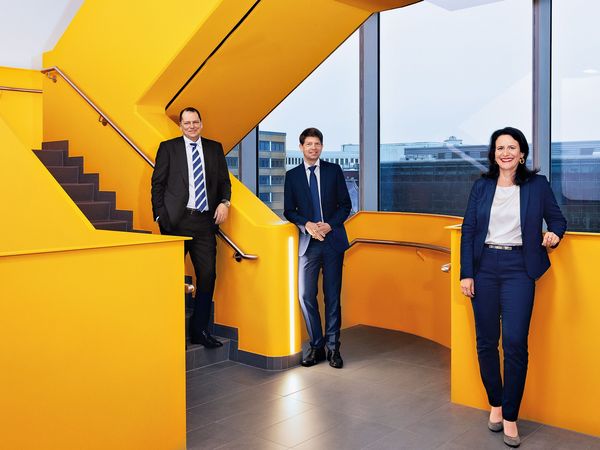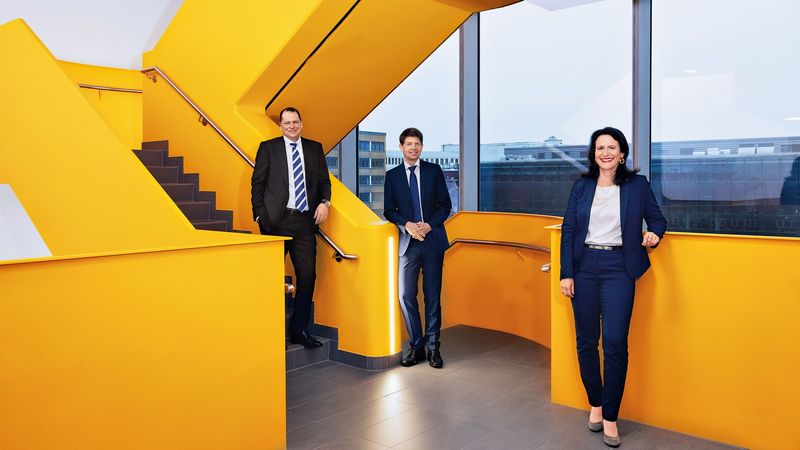Current Situation
The more society and politicians prioritize climate protection, the more important efficiency and the sustainable use of resources will become in the manufacturing industry. A conversation about progress and setbacks along the way to climate-neutral production
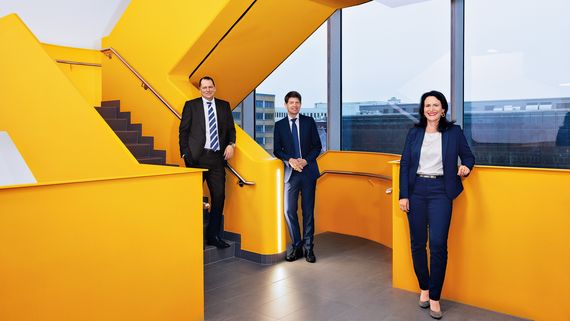
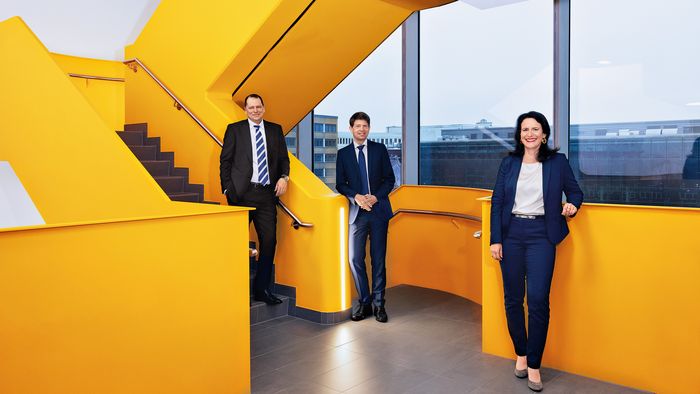
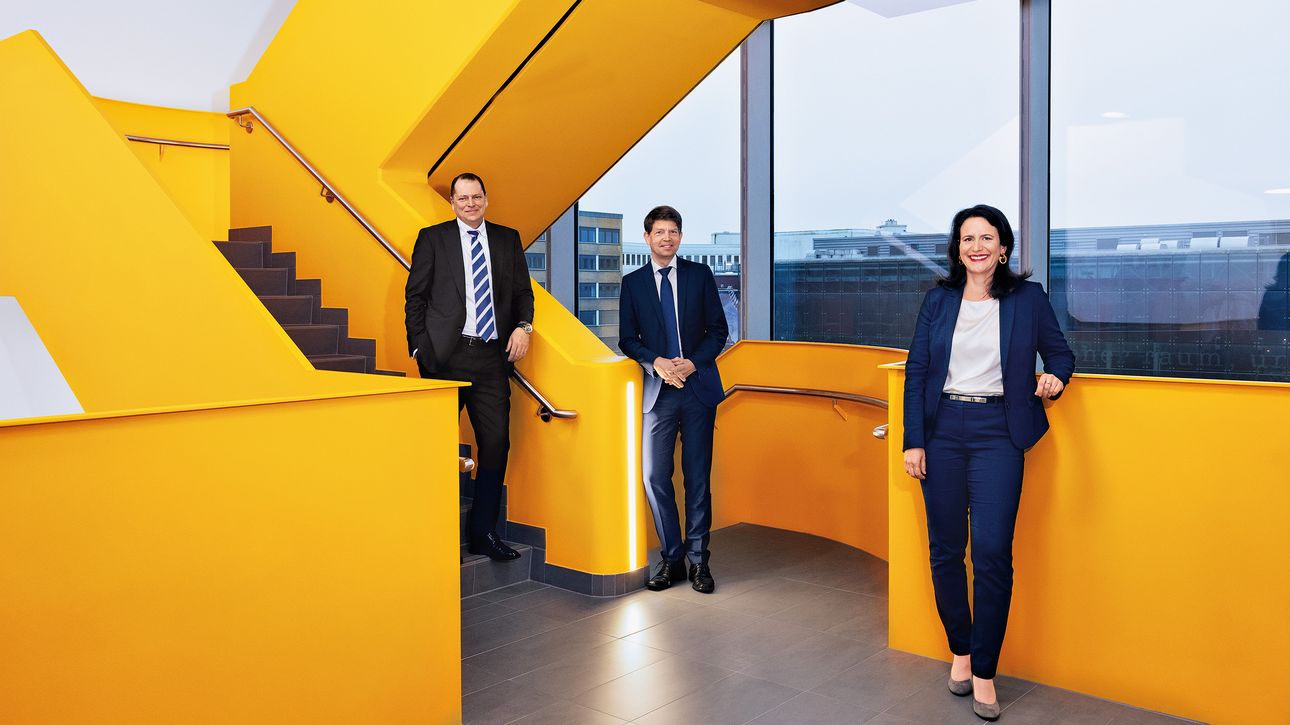
The international community wants to drastically reduce CO2 emissions in the coming years. Major automotive groups have declared their intention to move away from combustion engines, and the construction industry must also be more climate-neutral. Is the fossil age coming to an end?
Nico Hanenkamp: In the eyes of the wider public, this approach is now being followed. In fact, it started two decades ago. Let’s take the example of Germany, where a good 40 percent of energy requirements are already covered by renewable sources. The post-fossil age has long since arrived. The pressing question of our time is how we can achieve absolute climate neutrality within the next 20 years.
Stephan Nell: Fossil fuels have a high energy density, are easy to store, and are cost-effective to handle. This is why I believe that they are still a valid option in certain applications. For example, I can’t envisage aircraft using batteries because they are extremely heavy and would require the payload to be reduced. On the other hand, electric motors are perfect for small cars used in urban traffic. We need to differentiate and discuss the various energy sources and applications with regard to the respective technology. It frustrates me that people involved in current climate debates often argue dogmatically and not objectively.
Gabriele Maurer: I think both points are correct: yes, the fossil age is coming to an end but fossil fuels will continue to have a place where they offer major advantages over other forms of energy. In any case, the use of renewable energies has been growing organically for quite some time. Electric batteries will be used more often in some areas, and fuel cells in others. At the same time, extracting fossil fuels is becoming ever more expensive and the reserves are ultimately limited. The earlier we develop technically equivalent solutions using alternative energies, the better.
Ms. Maurer, Jungheinrich AG, is a leading international company in intralogistics. To what extent do your products influence the climate footprint of your customers?
Gabriele Maurer: Helping our customers to achieve their climate goals is at the heart of Jungheinrich’s strategy. Our vehicles, such as forklifts, are powered by electric batteries, giving our customers a better CO2 footprint than if they were using equipment with internal combustion engines. Warehouses can already work CO2-neutrally if they use green electricity. Furthermore, we are constantly developing our designs to improve the installation of lithium-ion batteries, as is the case with the new Powerline series. This means that the vehicles take up less space and our customers can make their warehouses more efficient.
Mr. Hanenkamp, efficiency is your byword because, as a professor at the University of Erlangen-Nuremberg, you work full-time on the efficient use of energy and resources. Where in the industry is there still room for improvement?
Nico Hanenkamp: The issue is not new to the industry, and a lot has happened over the last decade. However, the area where I think there is still a lot of catching up to do is the basic understanding that resources are not infinite. Many companies have so far paid little attention to what happens to their products over their entire life cycle. In the future, the issue of the circular economy will play a greater role in enterprise than before. And legislators need to create suitable conditions.
Gabriele Maurer: That is basically correct and is, of course, in a company’s economic self-interest: if we have the opportunity to recover something from old products, this will also lead to better new products.
Mr. Nell, how does the UNITED GRINDING Group, whose machines makes a significant contribution to the success of its customers, deal with the issue of resource efficiency?
Stephan Nell: We have the advantage that we have not used combustion engines for more than 100 years. No, seriously, all our machines are electrically powered. This means that companies who purchase green electricity for their production facilities can already work CO2-neutral. In addition, all of our brands have been awarded the prestigious Blue Competence ecolabel, for which efficiency must be demonstrably and continuously improved. The point made by Mr. Hanenkamp is also very important to us: we want to follow our products’ life cycles from start to finish and offer our customers the option of upgrading existing machines. This ranges from overhauling to retrofitting the machines and can include updating control systems. Retooling or process improvements also help to reduce resource consumption. Furthermore, grinding machines—and I am not limiting this to only our brands—have a great impact on efficiency in general because they produce highprecision, high-quality surfaces and thus make entire systems more efficient.
New technologies are an important point, Mr. Hanenkamp. Which do you think are particularly suitable for making machine tools more resource-efficient in the coming years?
Nico Hanenkamp: Definitely hydrogen and fuel cells. One of the perpetual problems of renewable energy is how to store electricity, and hydrogen can help, even if the technology is not yet mature. Further digitalization and artificial intelligence based on digitalization are also important. One technology that, in my opinion, has not been discussed much so far but which has great potential is using DC voltage instead of alternating current to run factories. After all, photovoltaic systems generate direct current and could therefore be integrated more effectively.
Gabriele Maurer: I also believe that battery research has not yet reached its limits. Lithium-ion batteries have given us completely new installation options compared to lead-acid batteries, and their efficiency has increased significantly in recent years. Moreover, vehicle batteries can also be given a second life and used as stationary storage units for electrical energy.
Stephan Nell: In our industry, technological development has contributed to making machines more economical and efficient. For instance, 3D-printed coolant nozzles drastically reduce energy consumption during grinding. Digitalization also has the potential for optimizing process sequences in production. We are currently well-positioned in this regard thanks to our new hardware and software architecture C.O.R.E. At the same time, data security must always be a priority. Handling customer data confidentially is nothing new to us, only how the data is made available and stored.
When we talk about new technologies and, above all, automation, many people are worried that their jobs are endangered. Can you understand their fears?
Nico Hanenkamp: I don't see empty factories in the future so I don't think that this concern is justified. The same fear came up over ten years ago when computer-aided manufacturing was a hot topic, and that didn't come true. But what I do predict is that the more the manual work is taken over by robots, the more knowledge-intensive the role of humans becomes.
Gabriele Maurer: I’m more inclined to believe that automating certain tasks, such as moving heavy components, will keep employees at work longer and make it easier for older people to remain in the workforce. We always have to consider the social consequences of change, which also applies to climate protection.
So we circle back to climate protection. Mr. Hanenkamp, what is the role of politics regarding this issue?
Nico Hanenkamp: Politicians have to pay attention to all sections of society and therefore also need to put suitable frameworks in place and define objectives. However, companies must be given a certain amount of leeway in how they implement these, ideally in combination with economic incentives. I think everyone has now understood that global warming is humanity’s greatest challenge and that we need to drastically reduce CO2 emissions.
Stephan Nell: A nice conclusion. Allow me to make one further comment: climate change is a global problem that also requires global solutions. It is of little use if we introduce ever-stricter rules in Germany or Switzerland but then other parts of the world do nothing. In my opinion, it would be much better if all countries would take advantage of the technical possibilities that we already have today. Politicians need to
think about this.




